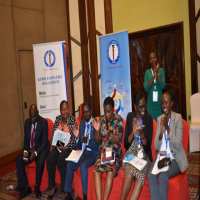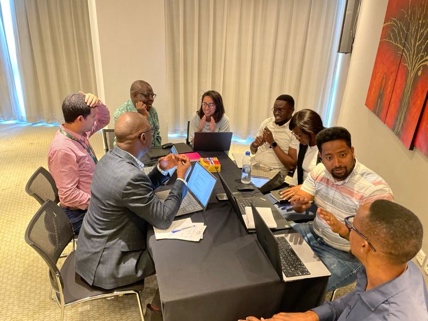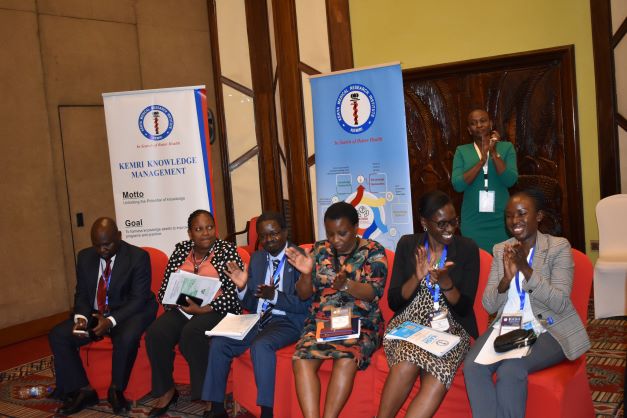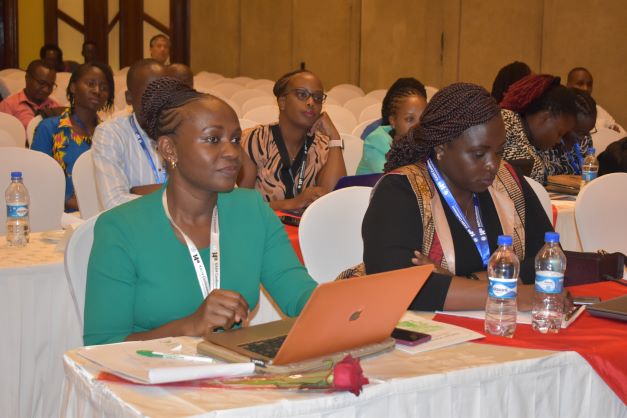
Africa CDC EIDM training by Cochrane Kenya
Anchoring evidence-based decision making (EBDM) as a fundamental principle, Africa CDC not only espouses this value but actively pursues its implementation through dedicated learning efforts. Recognizing the significance of practical application, in December, a pivotal initiative unfolded in Addis Ababa. Spearheaded by Cochrane Kenya team, Professor Charles Obonyo and Ms. Lilian Mayieka, alongside esteemed facilitators from Africa CDC, Kenya Medical Research Institute, Ethiopia Public Health Institute, and the Norwegian Institute of Public Health, a week-long training session unfolded. This comprehensive program delved into Evidence-Informed Decision Making (EIDM) and provided a foundational introduction to systematic review methodologies. The collaborative efforts symbolized Cochrane Kenya's commitment to enhancing Evidence-Informed Decision Making (EIDM) across the region, highlighting a concerted endeavor to foster a culture of rigorous inquiry and informed decision-making.

Knowledge Management/Cochrane Kenya Symposium
The department of Resource Development and Knowledge Management in collaboration with Cochrane Kenya in KEMRI held its 4th symposium on 14th February, 2024 at the safari park hotel. The half day symposium brought together a divergent panel of experts who have built a wealth experience in Big data, work with the community at the county level and experts in the health care field. They were able to share their experiences, insights and spoke into the theme of the symposium which was "Big Data in Healthcare System: Opportunities, Challenges, and Future Prospects in the Community Health System”.
The symposium sort to highlight the integral role of big data in knowledge translation, where by research findings are turned into tangible actions that benefit the society. The conversations centered around analyzing the current situation around Big data in public health. The current practices including data fragmentation, legal requirements in regards to data protection and digital health protection and application of artificial intelligence as a tool to support public health informed actions. There were also discussions around the future of big data and the strategies that can be implemented to improve data interoperability, as well as innovative solutions and collaborative approaches that can be adopted to harness the power of Big data.
As part of the recommendations, it was agreed that there is need to commercialize on data as part of revenue generation by supporting translation of research into innovative outputs. It is also imperative to address data fragmentation by bringing all programmes and facilities onto the electronic health information systems (eCHIS) platform and simplify reporting processes by integrating (eCHIS) automated reporting from to aggregated reporting systems into KHIS/DHIS2. There is also need to create a feedback mechanism at the community level through dialogue activities.
|
|
Three-day workshop on Systematic Reviews and Meta-analysis
The Africa Center for Systematic Reviews, in collaboration with Cochrane Kenya, AuthorAID, and the Africa Center for Systematic Reviews and Knowledge Translation (Uganda), organized a three-day hybrid workshop with the theme "Introduction to Systematic Reviews and Meta-analysis." The workshop was held from September 19th to 21st, 2023, featuring two virtual pre-workshop sessions followed by a three-day onsite event at the Infectious Disease Institution (IDI), Makerere University, Kampala, Uganda. Funding for the workshop was provided by AuthorAID/INASP.
The primary goal of the workshop was to introduce participants to the concepts of systematic reviews and meta-analysis, offering a comprehensive understanding of these research methodologies. The hybrid format allowed participants to engage in both virtual and onsite sessions, fostering interactive learning and discussions. The involvement of diverse partners contributed to a rich and collaborative learning environment. Overall, the workshop provided a significant opportunity for capacity building and knowledge exchange in the field of systematic reviews and meta-analysis.


